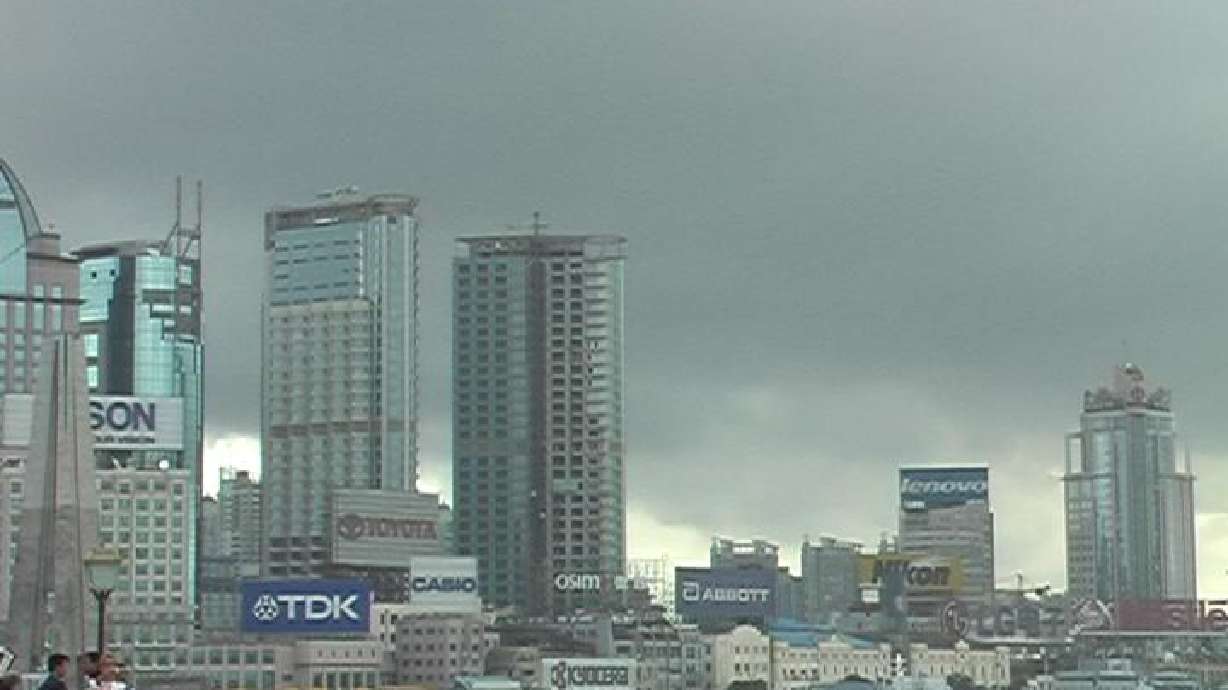Estimated read time: 3-4 minutes
This archived news story is available only for your personal, non-commercial use. Information in the story may be outdated or superseded by additional information. Reading or replaying the story in its archived form does not constitute a republication of the story.
Sammy Linebaugh ReportingThis week Governor Huntsman is in China with dozens of Utah business leaders to talk trade. Since 2003, total exports from Utah to China have nearly tripled to more than 320 million, and state leaders believe this is only the beginning.

Former KSL reporter Sammy Linebaugh, now a freelance reporter, takes us inside China with a look at one of the fastest growing economies in the world.
Workers in rural Hubei get paid by how much they can carry to a nearby construction site. The average daily wage is four US dollars.

In Shanghai modern engineering is an art form and income shows up in shopping bags. Clothes, cell phones, iPods - they're just a few of many western products now for sale there, from American coffee to golf gear, to treadmills that talk.
Jon Brenchley, Icon Health and Fitness: "She just said "Hello, my name is Alice, I'm your personal trainer today."

Jon Brenchley is from Logan, working in Shanghai for Utah-based "Icon Health and Fitness". He says "Alice" was invented specifically for the Chinese buyer and is, in simple economic terms, supplying demand.
Jon Brenchley, Icon Health and Fitness: "I've seen an explosion in just the three years I've been here."
That 'explosion' stretches far beyond treadmills. Shanghai has long been the place to get goods made cheaply to sell somewhere else. But a new marketplace is emerging and companies worldwide are scrambling to understand the mindset of a new Chinese consumer.
Lizhong Geng: "The big change now, the good thing, more people focused on themselves."
Lizhong Geng oversees Icon's marketing and says that means spending money on themselves.

Paul Haacke, Nu Skin: "We expect China to be a 3-500 million dollar market for us in a short period of time, three to five years."
Marketing Executive Paul Haacke, from Springville, works for Nu Skin. The Utah-based hair and cosmetics empire has just struck a deal with the Chinese government to launch direct sales in mainland China, which means locally trained reps can now sell Nu Skin products door-to-door.
Paul Haacke, NuSkin: "It's huge both to Nu Skin and to the state of Utah."
Retail stores already in place on the mainland grossed $100 million dollars last year. Like companies worldwide, Nu Skin is betting on China's continued growth.
So where's the money for cosmetics in the Chinese economy? An emerging middle class now has more disposable income than ever before. Recent studies find the middle 60% of the population now controls roughly half of China's wealth, while the richest 20 percent control the other half. China's poor, an estimated 250 million people, claim just six percent of the pie.
That leaves close to one billion people, in theory, who have some extra spending money.
Jon Brenchley, Icon Health and Fitness: "I think the opportunity is big. They're wanting to get a better life for themselves, for their children."
Who gets ahead and who doesn't in a country that seems to be separated by decades?
Lizhong Geng: "Why some people are so rich and some people are so poor, it is the fundamental "danger" for the society, for China."
Only time will tell whether China finds a balance and the rising tide lifts all boats, as new products and new opportunities make their way to one of the world's largest marketplaces.









